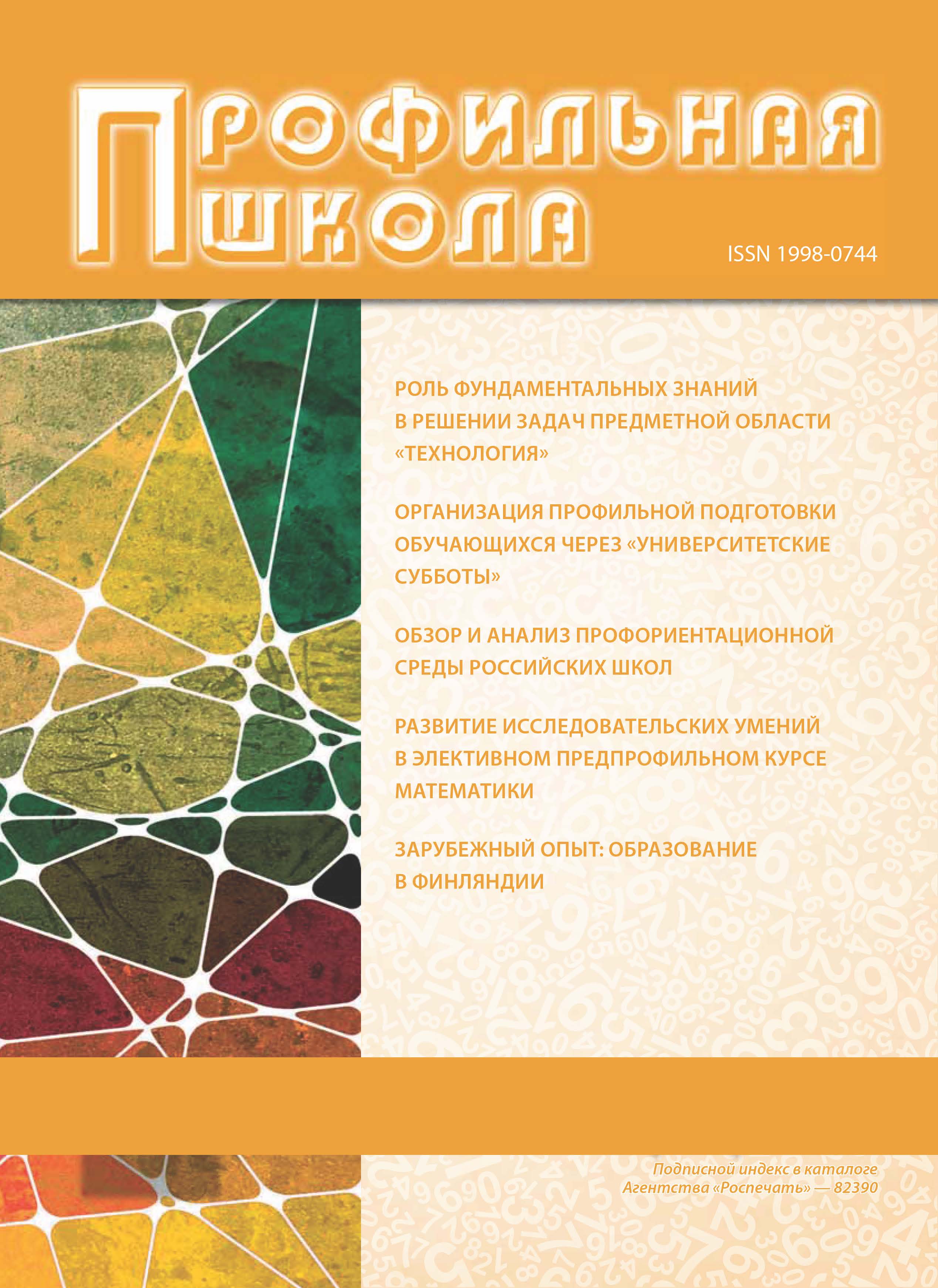Saransk, Russian Federation
Saransk, Saransk, Russian Federation
The article is devoted to the methodical features of construction of test tasks aimed at the formation of mathematical concepts. The authors analyze the pedagogical and psychological aspects of the given process, based on the logical rules of construction of determination notions and existing of the concept of the formation of mathematical concepts. The paper discloses and substantiates the possibility of the use of test tasks as a means of formation of mathematical concepts based on the diagnostic and didactic function tests. Methodic recommendations of application of test tasks at this or that stage of work on notion is given. The examples of the construction test tasks in view of specificity the mathematical content are shown. The article also examined ways of changing the complexity of these tasks, allowing you to use the proposed materials in the profile of teaching mathematics. Materials of the article will be useful for teachers of mathematics, students of pedagogical universities, graduate students and scientific workers pedagogical profile.
test tasks, mathematical concepts, definition of concepts, function of tests.
Формирование понятий — сложный аспект педагогической технологии, который требует от учителя трудоемких интеллектуальных затрат. В методической литературе, учебных пособиях, а также в сети Интернет представлено достаточное количество разнообразных готовых тестовых заданий по всем школьным дисциплинам. Педагоги широко используют их, прежде всего, с целью контролировать усвоенный материал. К сожалению, тест как средство отработки и закрепления изучаемых понятий, практически не используется. В данной статье тест рассматривается как средство формирования математических понятий, раскрываются методические аспекты создания тестовых заданий на примере предметной области «Математика. Информатика».
1. Voinova I.V. Ispol’zovanie sredstv komp’yuternogo testirovaniya pri formirovanii matematicheskikh ponyatiy [The use of computer-based testing in the formation of mathematical concepts]. Saransk, 2015. 112 p.
2. Voinova I.V. Kontrol’no-izmeritel’nye materialy po matematike [Gauging materials in mathematics]. Sarans, Izd. MGPI Publ., 2010. 108 p.
3. Voinova I.V. Elementy geometrii. Velichiny [geometry elements]. Saransk, 2008. 75 p.
4. Prikaz Minobrnauki Rossii ot 17 dekabrya 2010 g. № 1897 «Ob utverzhdenii i vvedenii v deystvie federal’nogo gosudarstvennogo obrazovatel’nogo standarta osnovnogo obshchego obrazovaniya» [Order of the Russian Ministry of 17 December 2010 № 1897 “On approval and enactment of the federal state educational standard of general education”]. Available at: http://minobrnauki.rf/dokumenty/543.
5. Rad’kov A.M. Testovye tekhnologii v sisteme nepreryvnogo obrazovaniya [Test technology in continuing education: method. Benefit]. Mogilev, Izd. MGU Publ., 2001. 147 p. EDN: https://elibrary.ru/YTEKJX
6. Safonova L.A. Praktikum po matematike [Workshop on mathematics]. Saransk, 2002. 72 p.
7. Talyzina N.F. Formirovanie poznavatel’noy deyatel’nosti mladshikh shkol’nikov [Formation of informative activity of younger schoolboys]. Moscow, Prosveshchenie Publ., 1988. - 175 s.
8. Fedorov E.B. Testirovanie kak sredstvo upravleniya uchebnym protsessom pri obuchenii matematike v spetsializirovannykh klassakh. Kand. Diss. [Testing as a learning management tool for teaching math in specialized classes. Cand. Diss.]. Moscow, In-t obshcheobr. shk. RAO Publ., 1992. 20 p. EDN: https://elibrary.ru/ZLPQON






